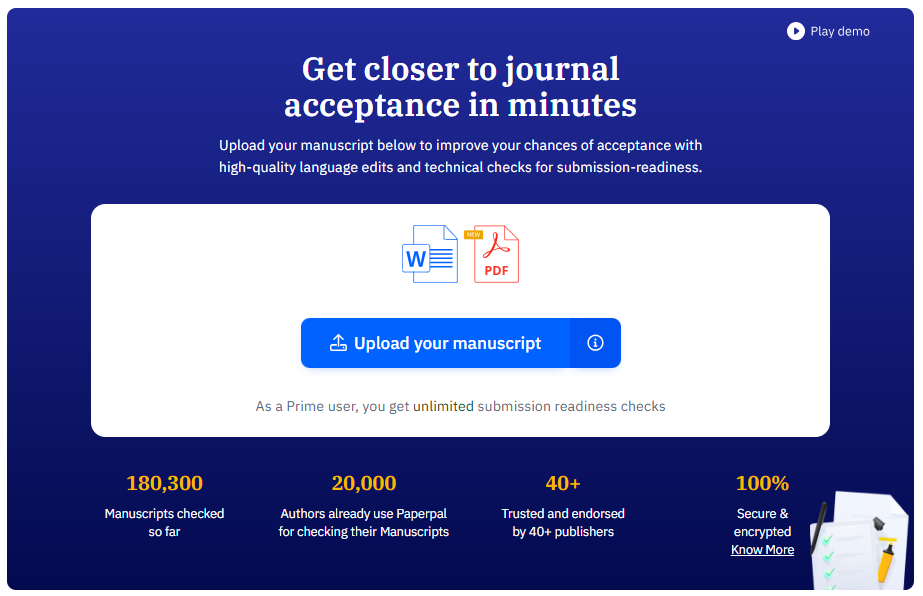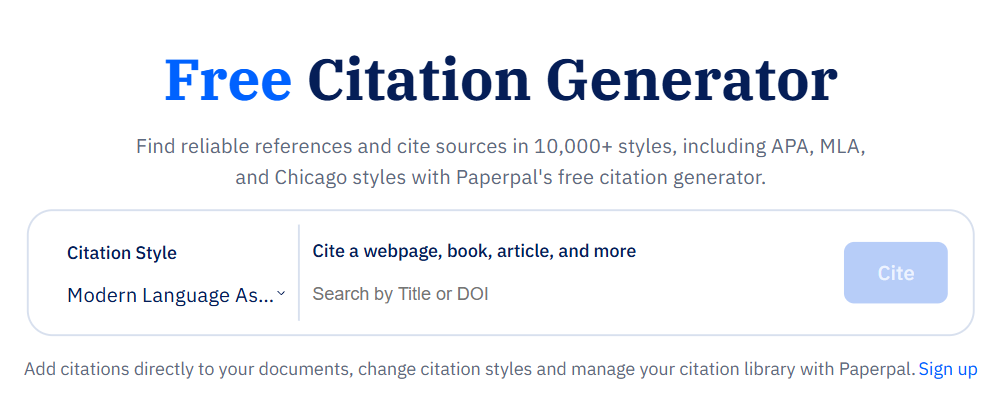Table of Contents
Every research paper builds on prior research, and this process begins with a literature review—the crux of scholarly research. In academic publications, citations and references constitute the sources—published and unpublished—consulted when writing your paper.1 Proper referencing of published literature is non-negotiable; it enables other researchers to
- Verify references in research papers
- Access the materials you used in your research
- Prevent plagiarism or misrepresentation of scientific ideas
- Ensure novelty of your research, etc.
Incorrect referencing can lead to delays in acceptance/publication, claims of plagiarism, or even retraction of published papers. While seemingly straightforward, working with citations and references in research papers can be a tricky business. However, managing citations and references in research papers remains one of the most challenging aspects of academic writing. From formatting inconsistencies to citation-reference mismatches, even small errors can lead to publication delays, credibility concerns, or even allegations of plagiarism.
Automate Reference Checks and Citation Formatting with Paperpal
Researchers spend hours tracking down missing bibliographic information to complete their citations, yet struggle to cross-verify references in research papers. Manually verifying and adding references to research papers means meticulously cross-checking each in-text citation against the corresponding entry in the reference list to ensure accuracy. Researchers have to verify the details of each source, such as journal names, publication years, and Digital Object Identifiers (DOIs), to confirm accuracy.
Paperpal’s all-in-one AI academic writing assistant now allows you to verify references in academic papers and generate accurate, auto-formatted citations, so you minimize the risk of desk rejection or revision requests due to reference inconsistencies. In three simple steps, Paperpal helps you automate reference checks in lengthy manuscripts –
Step 1 – Automated Manuscript Assessment with Paperpal’s Manuscript Checker
Upload a research document to Paperpal’s manuscript checker, and the AI tool immediately highlights issues that would likely trigger reviewer concerns or editorial requests for revision. Some of these include –
- Reference Count -Reference count varies by article type and journal rules. However, Paperpal checks for a reference section with at least 5 and no more than 100 references and corresponding citations in your manuscript.
- Age of References – Unless citing original, landmark work, citations and references should be recent. Paperpal automatically flags references older than 10 years for author review, ensuring recency.
- Abstract Citation Check – The abstract is a separate section, and most, if not all, journals do not permit citations in it. Paperpal identifies and scans the abstract section of a paper to ensure there are no citations present.
- Citation-Reference Correspondence – The discrepancy between in-text citations and the final reference list, where some cited sources are missing from the list, or vice versa, frequently causes unnecessary revision requests and slows down the peer review process. Paperpal addresses this issue by guaranteeing a precise one-to-one match between all citations within the main text and their corresponding entries in the final references, thereby eliminating the problem of missing citations or references.
- Self-Citation Analysis -Self-citation, where authors reference their own work to build upon previous findings, is acceptable for context. However, excessive self-citation can be viewed by reviewers as an attempt to inflate citation counts. Paperpal identifies manuscripts with over 15 self-citations or where self-citations constitute more than 80% of the references, helping ensure unbiased and relevant citations.
By identifying potential issues before submission, Paperpal helps prevent revision requests and publication delays.
Step 2 – Validate References with Paperpal’s AI Reference Finder
When Paperpal flags a potentially outdated or irrelevant source, use Paperpal’s AI Reference Finder to ask if there are recent studies on your research topic. The AI reference finder scans a database of 250+ million academic articles, pre-prints, and publications and provides evidence-based answers backed by scholarly literature, so you can strengthen statements.
For each flagged reference, you can copy the citation information or the DOI and paste it into the Paperpal reference finder. The tool instantly verifies if the reference exists in the scholarly database and confirms publication details against the original source.
Unlike generic search engines, Paperpal AI reference finder taps into specialized academic databases, ensuring that your citations come from credible, peer-reviewed sources relevant to your field.
Step 3: One-Click Citation Generation
For each reference requiring correction, you can locate the verified paper in Paperpal Library. Select the journal’s citation style, generate a perfectly formatted citation and reference entry and replace the problematic reference with the corrected version. The entire verification process, which would typically consume 1-2 full days, is completed in under two hours with Paperpal. Even better, you can export her entire curated reference list in BibTeX format for future papers on related topics.
The Paperpal citation generator streamlines the most tedious aspects of academic writing by allowing you to:
- Choose from over 10,000 citation styles, including APA, MLA, Chicago, IEEE, and journal-specific formats
- Generate perfectly formatted in-text citations with a single click
- Automatically create complete reference list entries
- Maintain the citation-reference relationship for seamless updates
For Prime users, Paperpal even manages their reference list automatically, adding or removing entries as they insert or delete citations in their text.
Thanks to Paperpal, checking citations and references in research papers has never been easier. All you have to do is to upload the final draft of your manuscript, and Paperpal handles the rest!
Paperpal Preflight is currently advocated by 13 leading publishers carrying over 300 journals and is available to use directly from the journal website. If you do not have a target journal in mind, you can use the standard configuration and check your work with Paperpal Manuscript Checker.
Paperpal is a comprehensive AI writing toolkit that helps students and researchers achieve 2x the writing in half the time. It leverages 23+ years of STM experience and insights from millions of research articles to provide in-depth academic writing, language editing, and submission readiness support to help you write better, faster.
Get accurate academic translations, rewriting support, grammar checks, vocabulary suggestions, and generative AI assistance that delivers human precision at machine speed. Try for free or upgrade to Paperpal Prime starting at US$25 a month to access premium features, including consistency, plagiarism, and 30+ submission readiness checks to help you succeed.
Experience the future of academic writing – Sign up to Paperpal and start writing for free!





